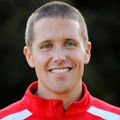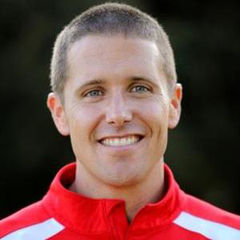The New Year is like springtime for healthy habits. They get to awake from hibernation and frolic in the sun for a little bit. Unfortunately, they often go back into hibernation as quickly as they emerged.
Plain and simple: New Year's resolutions fail us, and vice versa.
Why? The weather. The economy. The busy. My kids. My knees. Gluten.
The list goes on and on.
In reality, failure comes from trying to bring the old "you" into the "New" Year and expecting change. The same physical, mental and emotional machine that was there before the clock struck midnight is still going to be there after the champagne pops.
For the New Year to deliver permanent health in your life, it's necessary to retrain your body and brain to approach things differently and with a greater purpose. It's not a matter of working harder. It's a matter of working smarter.
This year, resolve to evolve.
Here are six of the most common debilitating “old” beliefs you may try to bring into the New Year, and how you can retrain our mind, body, and soul to overcome them
1. "I need to stop being stressed."
Retrain: Significant life stressors, such as losing a job, house, loved one, etc., can have extremely harmful effects on our health. However, these aren't necessarily the things that keep us up on any given night.
The day-to-day "stress" we experience is not inherently bad. It's merely our physiological reaction to demand, expectation, novel challenges and new situations. Consequently, these are all of the things that give our life purpose and help us grow.
You cannot eliminate stress in your life and anyone who says you can is wrong. You can, however, link the expectations, demands and challenges in your life to a bigger purpose. When we believe all of the things that cause stress in our life are working toward this purpose, we are fueled instead of failed by the natural physiological response of stress.
2. "I would [insert health related activity here], but I don’t have time."
Retrain: You have time for the things you prioritize. "I don't have time" means "It's not a priority." It's true that you can't do everything. However, we inherently do the things we believe are essential.
Consider the things prioritized in your life ahead of your health. What do they need in order to continue? The answer? YOU! As a matter of fact, these things don’t just need you to show up, they need you to perform. You can do neither without your health.
3. "I can't [insert healthy habit here]."
Retrain: The things we fail to do in our life fit into two distinct categories: The things we literally cannot do and the things we won’t do. In reality, the bucket of "I won'ts" is astronomically larger than the actual "I can'ts."
The "I can'ts" quickly get in the way of new healthy habits. This year, instead of using the phrase, "I can’t," try "I won't" and see how that feels. If your healthy habit goal is essential to you, "I won't" is unacceptable.
Adjust accordingly.
4. "I'm starting a diet."
Retrain: When it comes to your health, "diet" should always be a noun, never a verb. As humans, we require energy, and food is where we get this energy. The way we choose to energize ourselves with food is our “diet.” Low-energy (low nutritional value) food severely limits our energy capacity. High-energy (high nutritional value) food expands our energy capacity. When we eat something that isn't "food," it doesn't really do anything positive for us.
Considering all of the above, your daily diet should be a reflection of how you would like to feel from an energy standpoint. There’s room for high-energy, low-energy and even no-energy food in every diet. Focus on adjusting the ratios of each to feel the way you would like to feel.
5. "I can't get to the gym."
Retrain: The "gym" is not a magical land of health. We were without gyms for thousands of years, and managed to stay seriously fit. As a matter of fact, obesity rates have risen dramatically since the advent of "gyms."
To improve your physiology, psychology and overall health, research suggests at least 140 minutes a week of relatively intense exercise. This can include walking, hiking, dancing or even rollerblading. Our cells know "O2 in, CO2 out." The more we drive this physiology, the more positively it affects our health, whether it's done in a gym, basement, pool or on the slopes of a snow-covered mountain.
Yes, resistance training, high-intensity intervals, flexibility, etc., are awesome options. However, a base of 20 minutes a day of anything that elevates your heart rate significantly will not only save your life, but also make your daily life feel like it’s worth saving.
6. "I need more willpower."
Retrain: Willpower is the currency of an unguided life, panhandled in the hopes of sustaining another day. When it comes to creating healthy habits in your life, you take action based on one of two choices: You care or you don’t. You need a purpose for change that is so essential it makes you care. Willpower has no part in this.
We can’t care about and take action on everything all the time. When you select a habit to change, pick one thing at a time. Identify your purpose for creating change. Why is it essential? Why do you care? If you experience failure, examine your purpose. Did you identify something truly near and dear to your beliefs and values?
Having this awareness through the process of change ends the panhandling for willpower and builds a fortune of purposeful energy in the right direction.
Retraining for the New Year starts today. Start building your mental, physical and spiritual machine that creates success in every area of your life. Live extraordinary in 2017!




 by
by 









 by
by